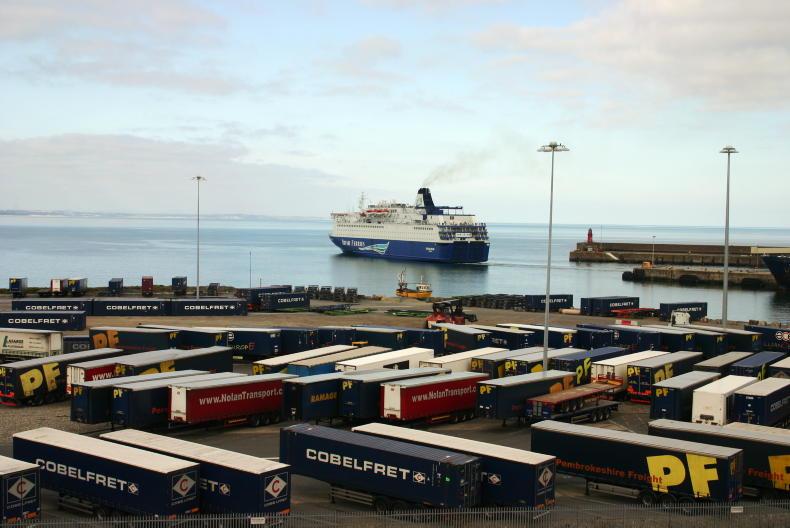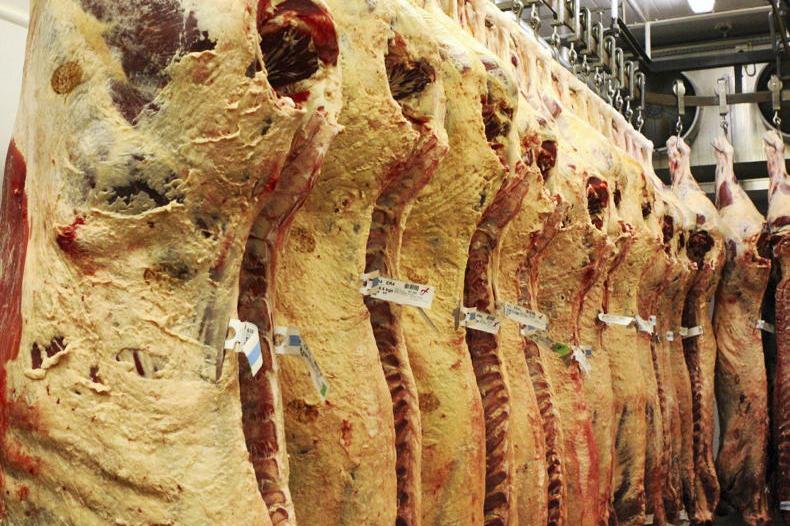With the prospect of no deal between the EU and UK looking more likely, it is time to consider what this means for farmers. Britain is the main export destination for beef, pigmeat, cheddar, mushrooms and second to France as a destination for sheepmeat.
What is likely to happen in 2021 if the UK applies full tariffs on the basis of the schedule published earlier this year?
The biggest hit will be taken by beef exports, which would carry €750m of tariffs, followed by dairy on €400m. The other sectors bring Irish agriculture exposure up to €1.5bn, and of the other sectors, Irish sheepmeat has the best options. The UK is the third largest exporter of sheepmeat in the world after Australia and New Zealand, so with it facing EU import tariffs, the EU market would be a very attractive outlet for sheepmeat exports from the island of Ireland.
Flexibility for some products
Mushrooms would face a tariff of 12%, making them much more expensive in the UK but that may be manageable. Pigmeat carries lower levels of tariff than other meats and in any case Irish pigmeat is globally competitive when it comes to pricing.
Brexit would damage Irish pigmeat as the UK is a substantial customer but it can develop options.
It is the same to some extent with dairy. Dependence on the UK market has been reducing over the past decade and, while there would be a huge problem with butter and especially cheddar, the processing industry should be fit to adapt in time to producing other products that can be traded internationally.
Irish beef exports will be an EU problem
The biggest problem will be beef with a tariff load of €750m, half of the entire tariff load on all agricultural produce exports. Half of all Irish beef exports are to Britain, just over 40% are to the rest of the EU and less than 10% are exported globally. The only alternative market for the almost 250,000t of Irish beef exported annually to Britain is other EU markets, more than doubling what we sell to our customers across the EU. Inevitably this will flood the EU market at a time when it is particularly weak because of the pandemic effects on out-of-home eating.
Unprecedented scale
If there is no tariff-free deal agreed between the EU and UK, then the disaster facing Irish beef production will immediately become an EU-wide problem for the beef sector. The EU will point to having successfully dealt with crises in the past including BSE, foot-and-mouth disease and most recently the Russian ban.
However, none of these were close to the scale of market disruption that this would be and it would require exceptional measures by the EU to stabilise the market including what would normally be unthinkable, closing the EU 27 to imports, at least as an interim measure.
Read more
Tariffs will hit Ireland hardest of all EU countries
Brexit preparations top agenda at Food Wise 2025 committee meeting
Deal or no deal, Brexit threat remains for farmers
With the prospect of no deal between the EU and UK looking more likely, it is time to consider what this means for farmers. Britain is the main export destination for beef, pigmeat, cheddar, mushrooms and second to France as a destination for sheepmeat.
What is likely to happen in 2021 if the UK applies full tariffs on the basis of the schedule published earlier this year?
The biggest hit will be taken by beef exports, which would carry €750m of tariffs, followed by dairy on €400m. The other sectors bring Irish agriculture exposure up to €1.5bn, and of the other sectors, Irish sheepmeat has the best options. The UK is the third largest exporter of sheepmeat in the world after Australia and New Zealand, so with it facing EU import tariffs, the EU market would be a very attractive outlet for sheepmeat exports from the island of Ireland.
Flexibility for some products
Mushrooms would face a tariff of 12%, making them much more expensive in the UK but that may be manageable. Pigmeat carries lower levels of tariff than other meats and in any case Irish pigmeat is globally competitive when it comes to pricing.
Brexit would damage Irish pigmeat as the UK is a substantial customer but it can develop options.
It is the same to some extent with dairy. Dependence on the UK market has been reducing over the past decade and, while there would be a huge problem with butter and especially cheddar, the processing industry should be fit to adapt in time to producing other products that can be traded internationally.
Irish beef exports will be an EU problem
The biggest problem will be beef with a tariff load of €750m, half of the entire tariff load on all agricultural produce exports. Half of all Irish beef exports are to Britain, just over 40% are to the rest of the EU and less than 10% are exported globally. The only alternative market for the almost 250,000t of Irish beef exported annually to Britain is other EU markets, more than doubling what we sell to our customers across the EU. Inevitably this will flood the EU market at a time when it is particularly weak because of the pandemic effects on out-of-home eating.
Unprecedented scale
If there is no tariff-free deal agreed between the EU and UK, then the disaster facing Irish beef production will immediately become an EU-wide problem for the beef sector. The EU will point to having successfully dealt with crises in the past including BSE, foot-and-mouth disease and most recently the Russian ban.
However, none of these were close to the scale of market disruption that this would be and it would require exceptional measures by the EU to stabilise the market including what would normally be unthinkable, closing the EU 27 to imports, at least as an interim measure.
Read more
Tariffs will hit Ireland hardest of all EU countries
Brexit preparations top agenda at Food Wise 2025 committee meeting
Deal or no deal, Brexit threat remains for farmers










SHARING OPTIONS